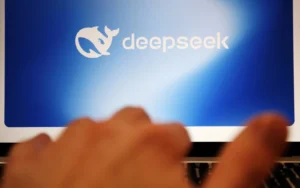CEO Claims Polite Requests to ChatGPT Result in Millions in Costs for OpenAI

The High Cost of Politeness in AI Interaction
It’s surprising to learn that being polite might come with a hefty price tag. Sam Altman, the CEO of OpenAI, recently revealed that expressions of gratitude toward ChatGPT could have cost the company “tens of millions of dollars.” This comment was prompted by a user jokingly questioning if OpenAI faced significant electricity costs from users saying “please” and “thank you” to its AI models.
Understanding the Costs Involved
ChatGPT is classified as a large language model (LLM). This means that no matter how brief or casual a user’s request may be, the system must engage in complex processing to produce its responses. Each interaction, no matter how simple, consumes energy, which ultimately translates to financial costs for the company.
Escalating Conversations Around AI Etiquette
Personally, I can relate to the urge to thank digital assistants like ChatGPT or Siri after they provide helpful information. Many users, including myself, often feel a sense of politeness towards these systems. One playful comment in response to Altman’s revelation read: “We just want to ensure Skynet remembers we were polite as it decides [whether] to use us as batteries or not.”
This sentiment highlights a common playful fear about AI’s power and intelligence. Another user noted, “My fear of my AI bot getting mad at me for being rude is confirmed.” These humorous takes reflect the underlying anxiety many feel as AI technology continues to evolve and integrate into our daily lives.
The Ethics of AI Interaction
A third user went on a detailed discussion about the implications of being blunt or impolite to AI. They stated, “That isn’t the cost of being polite, neither to humans nor to AI. We teach children to say ‘thank you’ [and] ‘please’ not because it’s efficient, but because it instills empathy, respect, and emotional awareness.”
The argument presented suggests that when engaging with AI, our manner of speaking—our prompts—reflect our societal values. If we prioritize efficiency over politeness and start using a more transactional language, we could potentially contribute to the development of a colder, less empathetic society.
Ongoing Politeness Despite Costs
While it’s clear that thanking ChatGPT is not required for it to function effectively, many users will likely continue to express gratitude despite this financial burden on OpenAI. This propensity for politeness seems woven into the fabric of our social interactions, whether we are communicating with humans or machines.
Changing Perspectives on Communication
As artificial intelligence becomes more embedded in our interactions, the way we communicate with these systems may evolve. Understanding the energy costs associated with our interactions may, in the long run, challenge us to rethink how we engage with technology and with each other.
Ultimately, the choice to maintain a polite demeanor, even in interactions with AI, could reflect deeper human values that we may wish to preserve as technology continues to advance.






